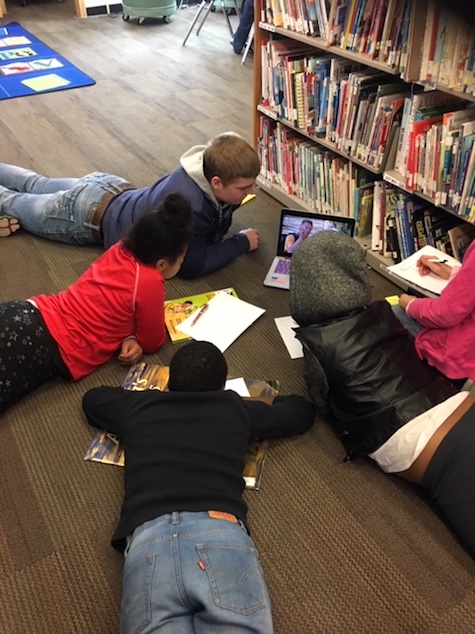Norma Linda Mattingly, Mount Mercy University, nmattingly@mtmercy.edu
Justin Brown, Taylor Elementary School, jubrown@cr.k12.ia.us
Victoria Corkery, Mount Mercy University, vcorkery4496@mtmercy.edu
Jacob Ehlen, Mount Mercy University, jehlen3283@mtmercy.edu
Crystal Krenz, Mount Mercy University, ckrenz0278@mtmercy.edu
Kelsey Suther, Mount Mercy University, ksuther2194@mtmercy.edu
Jen Welsh, Mount Mercy University, jwelsh7777@mtmercy.edu
Our elementary PDS partner school is nestled among homes, small businesses, churches, and a neighborhood park on the southwest side of the state’s second largest metropolitan city. Over 43% of the school’s student body identifies as minority. According to the state’s website, approximately 50% of the school’s students are proficient in both Math and Reading as indicated by state test scores. With this reality come unique opportunities.
The partnership between Mount Mercy University (MMU) and this local school is two years in the making, with the school having hosted interns for one full fall term for half days, three-times a week. Interns have also had immersion experiences where they spent three full days for two or more weeks. This spring interns focused on teaching small groups of students in 4th-5th grade combination classrooms in an immersion experience. Learning for both students and interns resulted in high student engagement in reading, math, and social studies. One classroom teacher, Mr. Brown, commented on benefits this partnership generated, “The content was fantastic in all subject areas for the students and myself. It’s always nice to see new ideas and reflect on my own practice. … [We’ve] appreciated the collaborative partnership.”
To motivate students, interns administered a survey to carefully select texts that piqued their students’ interests. The decision to use non-fiction texts helped further students’ comprehension and knowledge in science topics such as whales, bees, sharks, seahorses, and the human body as well as historical events such as the Depression, the life of President Hoover, and the Stock Market Crash of 1929. Questioning before, during, and after reading, main idea and supporting details, and inferring were core literacy standards interns targeted and reinforced (Hollenbeck & Saternus, 2013).
To deepen learning, interns led students in hands-on extension activities (Harvey & Goudvis, 2017). For instance, when studying whales, interns brought in measuring tools so students could determine the length of a whale’s flipper in order to get a sense of the animal’s expansive body length. They also used technology, incorporating video clips and other resources that highlighted the awesomeness and wonderment of the animal kingdom. Other interns assisted Mr. Brown and his students in building a Hooverville structure that could sustain rain, dust, and wind as a temporary shelter.
As students gained confidence, they eagerly shared their knowledge and thinking processes. Crystal Krenz, intern, stated, “Students were taught to monitor their comprehension by keeping track of their thinking, wonderings, and any questions they had while reading using post-its. At the end of our lesson, students didn’t want to leave. They wanted to keep asking questions. This told me they understood the role of questioning and really liked the topic of seahorses.”
Anecdotal data suggests interns’ reflections about their teaching were equally as positive. Intern Kelsey Suther shared how her lesson was impacted, “During the lesson, I changed my plan and had students read their texts together. Then they wrote their own summaries using the main idea and supporting details structure I’d taught them.”
While our PDS partnership is in its nascent stages, it appears non-fiction texts may be a gateway to keeping students engaged and moving forward in their literacy development. Interns also found out how impactful their decision-making can truly be.
References:
Harvey, S. & Goudvis, A. (2017). Strategies that work: Teaching comprehension for understanding, engagement, and building knowledge grades K-8. Portland ME: Stenhouse.
Hollenbeck, Amy. F. & Saternus, K. (2013). Mind the comprehension iceberg: Avoiding Titanic mistakes with the CCSS. The reading teacher, 66(7), 558-568.
